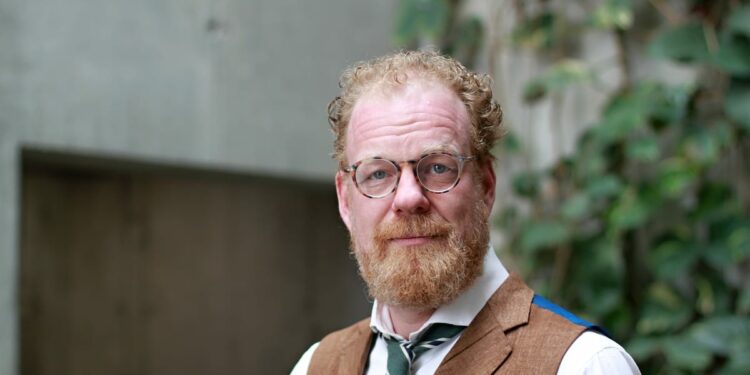Photo: René Volfík, iROZHLAS.cz
While Sedláček acknowledges positive indicators like low unemployment, he believes this masks fundamental problems. “It was a year of missed opportunities. The government failed to take advantage of calm economic conditions to commit to radical restructuring,” he explains. Key areas like education, infrastructure, and green technologies saw no significant progress. “The Czech Republic still has a chance to catch the ‘western train,’ but we’re falling behind as our neighbors move forward.”
When it comes to inflation, Sedláček offers rare praise for the Czech National Bank (CNB). “National banks across the Western world had a tough role. They needed to manage post-COVID recovery without tightening monetary policy too much. Even under current conditions, some Swiss and American banks collapsed. I believe the CNB deserves credit for steering through the crisis without major unrest – the only cost was currency devaluation.”
Czech National Bank|Photo: Štěpánka Budková, Radio Prague International
However, housing remains a troubling issue. According to Sedláček, the real estate market continues to defy logic and prediction. “The housing market puzzles not just us, but other countries too. We know how many people were born 30 years ago and how many apartments are being built, yet the market behaves unpredictably,” he says. “The 2007-2008 crisis started in the mortgage sector, a sector that should have been predictable but instead became a breeding ground for economic shocks.”
Pension reform is another long-standing problem that Sedláček believes has been left unresolved. “We’ve been discussing pension reform since at least 2000. The Czech Republic relies more heavily on state pensions than other countries, with retirees receiving 93-94% of their income from the state,” he points out. “Other countries save more privately. Our reforms have only adjusted the parameters, not the engine of the system. In 5 to 6 years, we’ll need to reform it all over again.”
Petr Pavel|Photo: Zuzana Jarolímková, iROZHLAS.cz
The 2024 budget, which faced political resistance and was signed reluctantly by President Petr Pavel, also drew sharp criticism from Sedláček. “This budget is bland and uninspiring. I’m not surprised the president hesitated to sign it. The deficit is unjustifiable. Unless we transform into a modern economy – one that lightly draws on reserves rather than relying on coal and timber exports – we will continue to need budgetary injections just to stay afloat. It’s like a drug. I am surprised this government keeps administering it, delaying real transformation.”
Looking to 2025, Sedláček sees little reason for optimism but believes adopting the euro could provide the discipline the Czech economy needs. “No miracle is expected in 2025. But adopting the euro would give us structure and eliminate excuses. Whatever people think about the euro, it is the Harvard of currencies. It would force discipline and provide direction,” he concludes.
Source link : http://www.bing.com/news/apiclick.aspx?ref=FexRss&aid=&tid=6778c2b1edbb4ade89004d31f21ed4eb&url=https%3A%2F%2Fenglish.radio.cz%2Ftomas-sedlacek-about-czech-economy-2024-a-year-missed-opportunities-8838579&c=7476036030027570270&mkt=de-de
Author :
Publish date : 2024-12-30 02:18:00
Copyright for syndicated content belongs to the linked Source.




